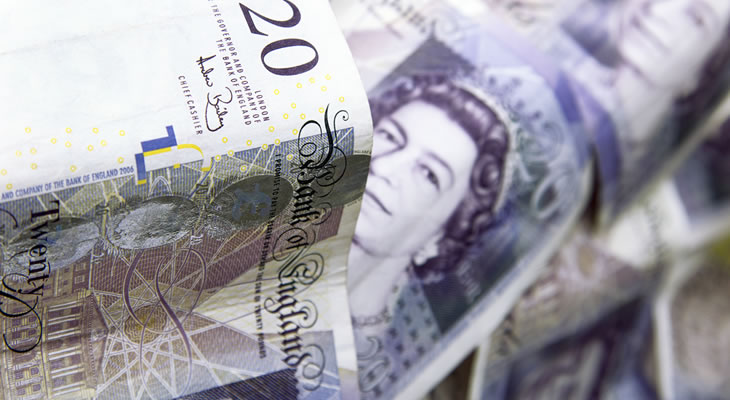Pound to Australian Dollar Exchange Rate Climbs as Australian Inflation Disappoints
Despite broad weakness in the Pound (GBP) since last week, the Pound to Australian Dollar (GBP/AUD) exchange rate climbed again on Tuesday due to disappointing Australian data.
Last week’s Pound weakness caused GBP/AUD to tumble from 1.8329 to 1.8256, but during Tuesday’s Asian session the pair advanced again. GBP/AUD touched a high of 1.8349 this morning before trending closer to 1.8320.
GBP/AUD could be on track to recover all of last week’s losses and could easily advance further if Friday’s upcoming UK growth report beats expectations.
The Australian Dollar (AUD) has been unappealing lately on low Reserve Bank of Australia (RBA) interest rate hike bets. Tuesday’s underwhelming Australian inflation report just made investors even more hesitant to buy AUD.
Pound (GBP) Exchange Rate Gains Limited as UK Data Fails to Impress
While investors sold the Australian Dollar on Tuesday, the Pound failed to capitalise on its weakness as recent UK data has been disappointing.
Tuesday saw the publication of Britain’s public sector net borrowing report from March, which did beat expectations of £-1.1b and come in at £0.26b, but the print was not influential enough to boost Sterling appeal.
Last week’s poor UK data and falling Bank of England (BoE) interest rate hike bets weighed heavily on Pound appeal, limiting its strength even against weaker rivals like the Australian Dollar.
On top of this, Brexit uncertainty has worsened again this week as the UK government has recently been defeated in the House of Lords on certain non-binding Brexit votes.
This added to speculation that UK Prime Minister Theresa May’s leadership may be under threat, which has made Pound investors anxious.
Australian Dollar (AUD) Exchange Rates Weakened by Disappointing Domestic Inflation
Australia’s Q1 2018 Consumer Price Index (CPI) results were published during Tuesday’s Asian session and fell short of forecasts in both major prints.
The quarter-on-quarter figure slipped from 0.6% to 0.4% rather than the forecast 0.5%, while the yearly figure remained at 1.9% rather than climbing to the estimated 2%.
With Australian inflation still more subdued than expected, investors are even more doubtful that the Reserve Bank of Australia (RBA) will take a more hawkish stance on monetary policy any time soon.
Analysts were generally unsurprised with the results, which were generally noted to indicate that Australian inflation was still improving – just very gradually.
Most analysts believe the RBA’s recent cautiousness is justified. As a result, investors hoping for a more hawkish RBA sold the Australian Dollar.
According to Su-Lin Ong from RBC Capital Markets:
‘For the RBA, today’s data are likely to reinforce their base case that core inflation has troughed and heading back to target. Indeed, the average of today’s core measures rounds to 2% for the first time in over 2 years.’
Pound to Australian Dollar Forecast: UK Growth Results Could Influence GBP/AUD Outlook
The Pound to Australian Dollar (GBP/AUD) exchange rate could see even stronger gains later in the week, depending on the results of some key UK data.
Friday will see the publication of Britain’s Q1 2018 Gross Domestic Product (GDP) projections. UK growth is currently forecast to have slowed slightly quarter-on-quarter, but to have remained at 1.4% year-on-year.
If UK growth is solid and impresses investors, Bank of England (BoE) interest rate hikes may recover from last week’s tumble and this could make GBP/AUD more appealing.
With GBP/AUD already on track to recover last week’s losses, strong UK growth data would help the pair make even stronger gains.
Australian Dollar demand is likely to remain weak and upcoming data is unlikely to influence Reserve Bank of Australia (RBA) interest rate hike bets much either.
Instead, AUD traders will be anticipating next week’s session, when the RBA will hold its anticipated May policy decision meeting.


Comments are closed.